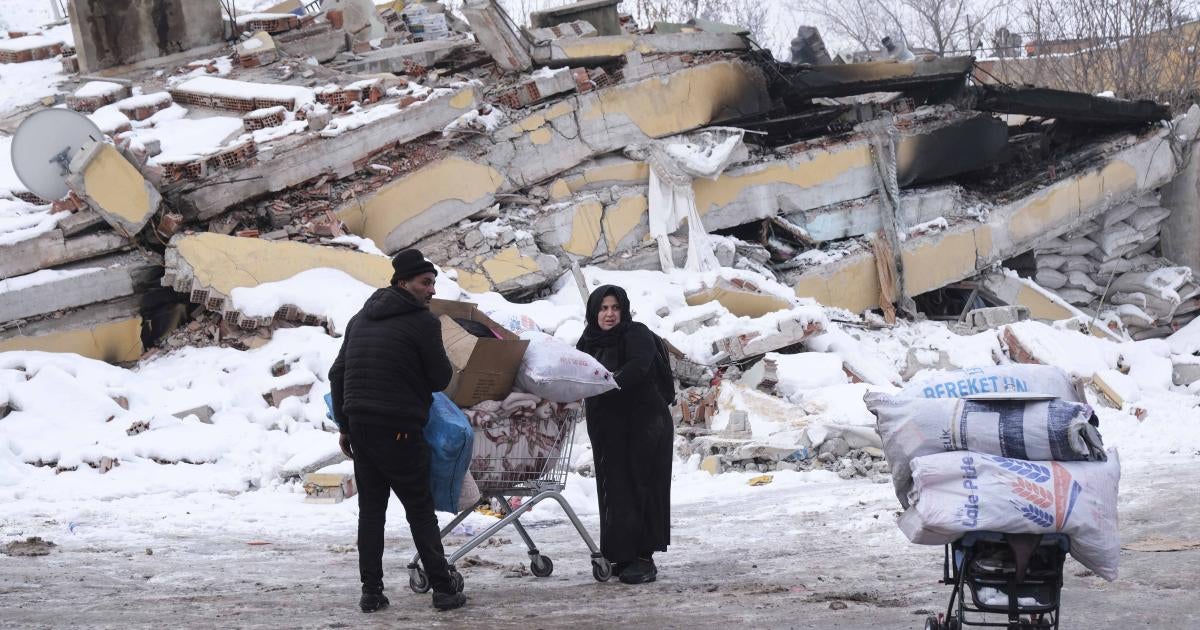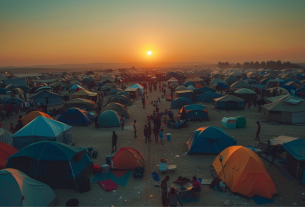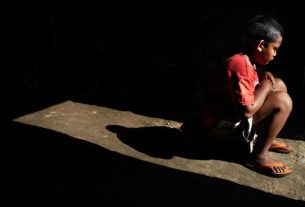(Istanbul) – Turkey’s arbitrary decision to give refugees living in the provinces affected by the February 6, 2023 earthquakes only 60 days outside the region leaves many people with an uncertain future and unable to plan for their long term needs, Human Rights Watch said today.
Turkey should indefinitely suspend the time restrictions on longer-term settlement outside the region that apply to the refugees registered as residents in the 10 provinces affected. They should be able to plan to rebuild their lives outside the region without additional, arbitrary barriers not faced by other earthquake victims.
“The current 60-day limit for Syrian refugee earthquake survivors on time spent outside the region leaves them in limbo, with many fearing they will be forced back to inadequate housing arrangements in the devastated provinces,” said Nadia Hardman, refugee and migrant rights researcher at Human Rights Watch. “The time limit is wholly arbitrary, creating unnecessary and unjustifiable financial and mental strain on refugees.”
On March 13, Turkey’s interior minister estimated that 48,448 people including 6,660 foreigners, the majority of whom were Syrian refugees, died in the February 6 earthquakes in Turkey. Government officials also estimate that a quarter of a million buildings have been damaged, and about two million people have left the earthquake region. No official estimates are available for the number of refugees among them.
Under ordinary circumstances Turkey imposes travel restrictions on refugees, prohibiting them from traveling out of the provinces in which they are registered with local authorities, unless they secure a permit. On February 7, the authorities lifted these restrictions for about 1.7 million refugees under temporary and international protection in the earthquake region for 90 days, but then cut back the time period to just 60 days.
This means that those refugees can travel without a permit and find alternate accommodation elsewhere, but it leaves them uncertain whether they will have to return to their devastated provinces after a 60-day period irrespective of housing prospects there. This prevents them from seeking longer-term solutions elsewhere, Human Rights Watch said.
Human Rights Watch spoke to 11 Syrian refugees who travelled to Istanbul, Ankara, İzmir, or Bursa to stay with relatives after the earthquake. Most said they decided to leave after spending days outdoors in the midst of aftershocks and cold weather with little access to food or shelter.
After leaving the earthquake region, by law refugees must go to local migration offices to apply for a permit to stay in their new location. Those Human Rights Watch spoke to said it was difficult to focus on seeking a permit and dealing with bureaucratic arrangements when they had lost family members, suffered serious injuries including amputation of limbs, had been made homeless, and felt traumatized.
Permission to travel outside provinces where they are registered is based on two circulars issued by the Presidency of Migration Management, on February 7 and February 13. The February 7 circular ordered local authorities to allow all refugees registered with the Turkish migration authorities in the 10 affected provinces to travel without a permit to other provinces except Istanbul and stay outside of their registered provinces for up to 90 days.
The second circular, on February 13, superseding the February 7 announcement, reduced the length of the time to 60 days and granted those travelling from the worst affected five provinces (Hatay, Malatya, Kahramanmaraş, Adıyaman, and Gaziantep) unconditional access to other provinces, but made travel from the other five (Kilis, Diyarbakır, Şanlıurfa, Adana, and Osmaniye) dependent on the applicant’s home being seriously damaged and the existence of medical needs that could only be met in other provinces.
Those in the second group are not allowed to move to the many neighborhoods in Turkey officially closed for new registrations of refugees. Both circulars were sent to local nongovernmental groups or civil society leaders privately but were not shared on official websites or social media accounts of relevant authorities. Human Rights Watch has seen copies of both.
People interviewed said that officials in the local migration management offices were unable to tell them what to expect in the coming weeks and months. Neither official Presidency of Migration Management (PMM) nor Interior Ministry websites or social media accounts provide any information. The interviewees said they found out about the 60-day permit through Syrian media outlets, WhatsApp groups, and social media platforms.
The people interviewed said that 60 days is not sufficient to plan their lives. One woman said that her family spent most of their savings just to leave the province where they were registered.
A couple who used to live in Hatay said they still paid rent for their damaged uninhabitable house and for a newly rented apartment in Istanbul because of the uncertainty around what to expect. Some Syrians whose houses were not damaged and did not move out said they are now threatened with evictions because Turkish landlords are seeking to use the apartments for their own relatives displaced by the earthquakes.
In 2022, Turkey’s Interior Ministry introduced a policy of “thinning out” the foreigner population by designating 1,169 neighborhoods in 63 provinces as “closed” to new registrations of refugees, including some in the 10 provinces devastated by the earthquakes. This policy applies to locations where the refugee population is believed to make up more than 20 percent of the overall population.
One man said his relatives who travelled from the earthquake zone could not rent houses in a closed Istanbul neighborhood. When trying to rent in another neighborhood, they were asked to pay six months’ rent in advance.
The damaged infrastructure, lack of housing options, and the uncertainty around their future makes it difficult and expensive for refugees to plan their lives and future steps, Human Rights Watch said.
“Refugees should be allowed to seek shelter in cities with functioning infrastructure and be given time to recover until the affected cities have sustainable housing and basic necessities available for everyone,” Hardman said.



